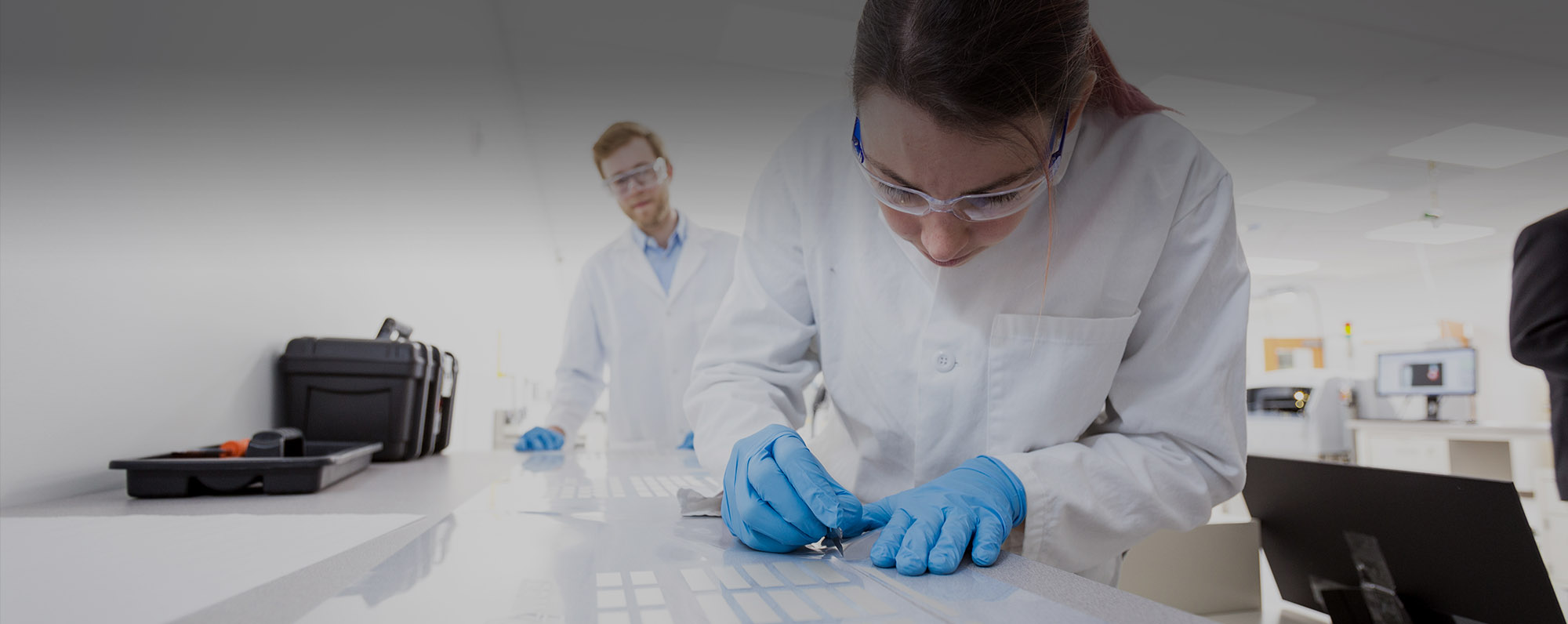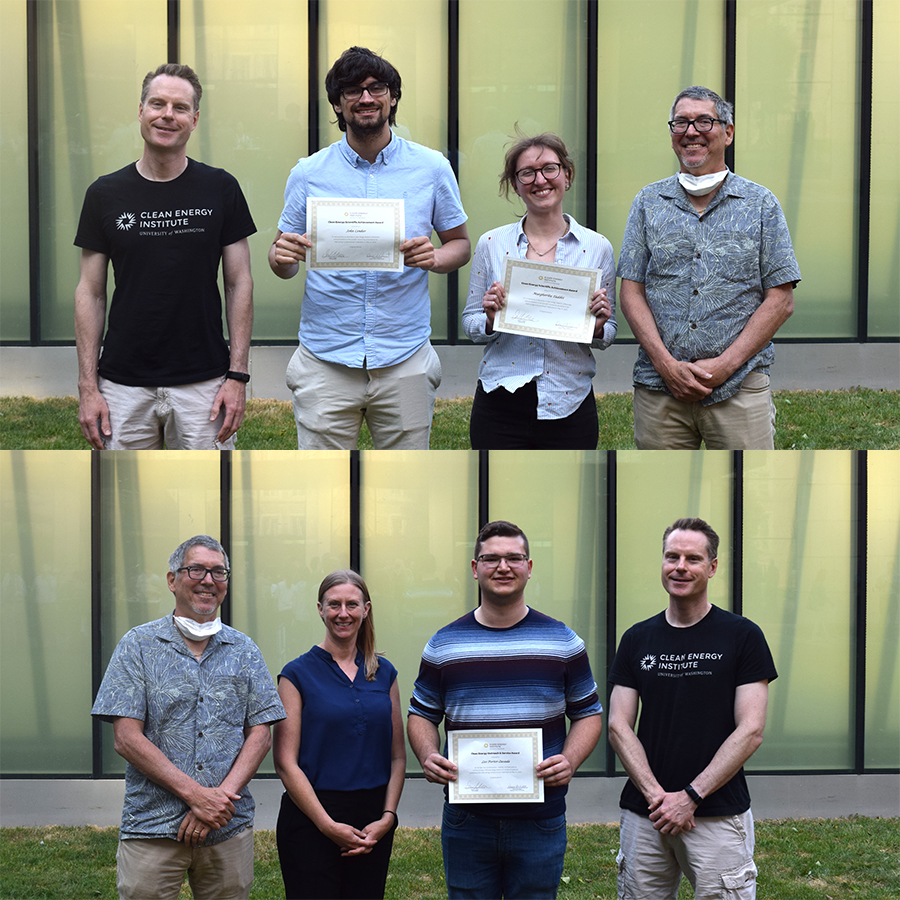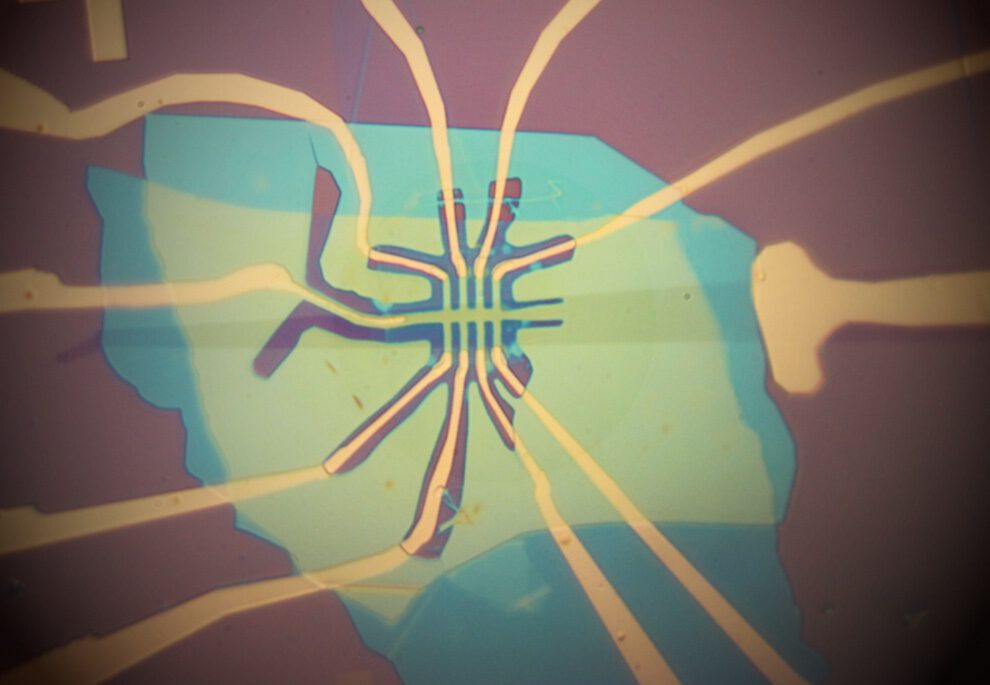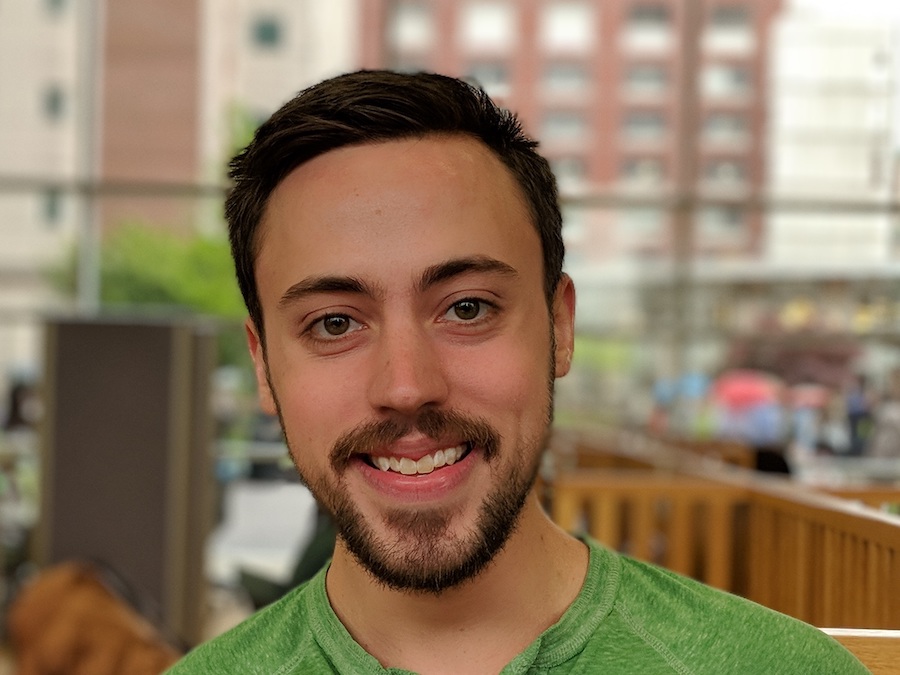John Cenker, Margherita Taddei, Leo Zasada win 2023 CEI Student Awards
[vc_row][vc_column][vc_column_text css=".vc_custom_1692208519060{margin-bottom: 25px !important;}"]August 16, 2023[/vc_column_text][vc_column_text css=".vc_custom_1691523011224{margin-bottom: 25px !important;}"]John Cenker, Margherita Taddei, and Leo Zasada received the Clean Energy Institute’s 2023 Clean Energy Student Achievement Awards at the institute’s annual end-of-year seminar on May 25.[/vc_column_text][vc_column_text css=".vc_custom_1691523080150{margin-top: 25px !important;margin-bottom: 25px !important;}"] Scientific Achievement [/vc_column_text][vc_column_text css=".vc_custom_1691523107176{margin-top: 25px !important;margin-bottom: 25px !important;}"]The Clean Energy Scientific Achievement Award recognizes UW graduate students who have demonstrated extraordinary productivity in clean energy research and scholarship, and have contributed meaningfully to the scientific community.[/vc_column_text][vc_column_text css=".vc_custom_1691523110808{margin-top: 25px !important;margin-bottom: 25px !important;}"] John Cenker [/vc_column_text][vc_row_inner][vc_column_inner width="3/4"][vc_column_text css=".vc_custom_1691523157007{margin-top: 25px !important;margin-bottom: 25px !important;}"]John Cenker is a fifth-year Ph.D. student in physics and a 2021-22 CEI Graduate Fellow, advised by CEI faculty...
All together now: Experiments with twisted 2D materials catch electrons behaving collectively
[vc_row][vc_column][vc_column_text css=".vc_custom_1602006386435{padding-top: 10px !important;padding-bottom: 5px !important;}"]By James Urton, UW News[/vc_column_text][vc_column_text css=".vc_custom_1602005322374{padding-top: 5px !important;padding-bottom: 5px !important;}"]October 6, 2020 [/vc_column_text][vc_column_text css=".vc_custom_1602005344894{padding-top: 5px !important;padding-bottom: 5px !important;}"]Scientists can have ambitious goals: curing disease, exploring distant worlds, clean-energy revolutions. In physics and materials research, some of these ambitious goals are to make ordinary-sounding objects with extraordinary properties: wires that can transport power without any energy loss, or quantum computers that can perform complex calculations that today’s computers cannot achieve. And the emerging workbenches for the experiments that gradually move us toward these goals are 2D materials — sheets of material that are a single layer of atoms thick.[/vc_column_text][vc_row_inner][vc_column_inner width="3/4"][vc_column_text css=".vc_custom_1602005353517{padding-top:...
Matthew Yankowitz wins Army Research Office Young Investigator Award for layered 2D materials
[vc_row][vc_column][vc_column_text css=".vc_custom_1600448608935{padding-top: 10px !important;}"]July 9, 2020[/vc_column_text][vc_column_text css=".vc_custom_1600448636333{padding-top: 10px !important;}"]Originally published by the University of Washington Department of Materials Science & Engineering.[/vc_column_text][vc_column_text css=".vc_custom_1600450122381{padding-top: 10px !important;}"]Matthew Yankowitz, Washington Research Foundation Innovation Assistant Professor in Clean Energy and assistant professor of materials science & engineering and physics, has received the Young Investigator Program (YIP) Award from the Army Research Office, an element of the U.S. Army Combat Capabilities Development Command’s Army Research Laboratory. The objective of the YIP is to encourage and support young university faculty in research areas relevant to the Army. YIP awards are one of the most prestigious honors bestowed by the Army to...
CEI Research Highlights: January 2018
Research updates from the labs of Profs. Daniel Kirschen, Karl Böhringer, Charles T. Campbell, and Xiaodong Xu. Topics include energy storage planning and markets, self-cleaning solar panels, modeling chemical potential in nanoparticles, and the optoelectronic properties of 2-dimensional magnets. ...







